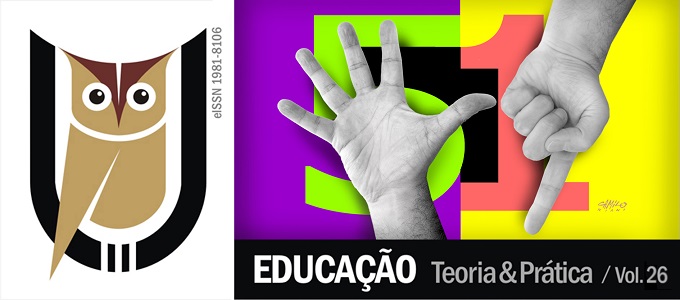Continuing education and pedagogical practice: What do teachers who work in preschool think about it
DOI:
https://doi.org/10.18675/1981-8106.vol26.n51.p97-111Abstract
This paper presents the results of a survey that aimed to examine whether continuing education in three educational institutions for children, is reverberating in the pedagogical practice of the teachers. The research had as data-collection techniques observation of teaching practice, questionnaire, interview with the pedagogical coordinators and the analysis of continuing education projects. In this paper, we present the data obtained from the questionnaire answered by seven teachers, which it was intended to meet the profile of the teachers working in the preschool, check what they think about their practice in early childhood education and to understand their conceptions of the continuing education offered by institutions surveyed. Our results showed that the continuing education brought contributions to the improvement of pedagogical practice, however, revealed aspects to be reviewed by the pedagogical faculty and coordination so that the training can meet the needs of the educational context. Keywords: Continuing Education, Pedagogical Practice, Kindergarten.Downloads
Additional Files
Published
How to Cite
Issue
Section
License
Authors who publish in this journal agree to the following terms:
a) Authors assign copyright to the journal, with the work simultaneously licensed under the Creative Commons Attribution License that allows sharing of the work with acknowledgment of authorship and publication in this journal.
b) The policy adopted by the Editorial Committee is to assign copyright only after a period of 30 months from the date of publication of the article. After this time, authors interested in publishing the same text in another work must send a letter to the Editorial Committee requesting the release of the assignment of copyright and wait for a response.
c) This journal provides public access to all its content, since this allows greater visibility and reach of published articles and reviews. For more information on this approach, visit the Public Knowledge Project, a project that developed this system to improve the academic and public quality of research, by distributing OJS as well as other software to support the public access publication system to academic sources. The names and email addresses on this website will be used exclusively for the purposes of the journal and will not be available for other purposes. This journal provides open any other party  This work is licensed under a Creative Commons License
This work is licensed under a Creative Commons License











